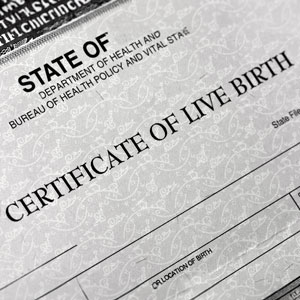General Blog

In this article, you will discover: The importance of a parenting plan for divorced first responders in Minnesota. Whether a parenting plan for first responders should include emergency or overtime contingencies. How a solid parenting plan can prevent conflict. What Is A Parenting Plan, And Why Is It Important For First Responders? A parenting plan is a day-to-day schedule that lets all parties, parents and children, know who the children will be with and when. One-week-off-one-week-on schedules often work well for older children and teens, where the child spends a week with one parent and the following week with the other. Younger children usually benefit from a split schedule, which allows for varying amounts of time spent with each parent. A parenting plan should also cover parenting time for the…Read More

In this article, you will discover: Why it’s inadvisable to withhold visitation during a custody dispute. Why it’s important to document parenting time in a custody dispute. Why you should never rely on verbal agreements in a custody dispute. Mistake #1: Withholding Visitation What the courts and the legal system look at now is different from the past. At one point, it was considered appropriate for the mother to have most of the visitation and for the father to have only some. Now, it's really 50/50. The courts want both parents to have an equal opportunity to raise that child. Withholding visitation can be something that the court frowns upon. If you're preventing the other parent from spending time with the children, that's going to be a problem, and the…Read More

In this article, you will discover: The role of no-contest clauses in preventing family disputes over estate plans. Whether establishing a trust can reduce family disputes over inheritance. Whether letters of intent are beneficial to estate plans. What Role Does A No-Contest Clause Play In Preventing Disputes? A no-contest clause is a stipulation within the estate planning documents that states if somebody contests this will, they get nothing. Its purpose is to prevent somebody from contesting the document. It's not necessarily enforceable, but it can serve as a warning. Can A Trust Help Reduce Family Conflicts Over Inheritance? A trust can reduce conflict once you execute it. When you draft a trust estate plan and sign it at the execution meeting, you walk out the door with it. From that…Read More

In this article, you will discover: What a personal representative is and does in Minnesota probate. Whether a personal representative can be held liable for mistakes made in probate. How contested wills are handled under Minnesota law. What Is The Role Of A Personal Representative In Minnesota Probate? The personal representative is a fiduciary role, meaning they have a responsibility to somebody besides themselves. In this case, the personal representative has a fiduciary responsibility to the beneficiaries of the estate plan. The personal representative will petition the court, if needed, to administrate the estate of the deceased or “decedent.” They will also gather the assets of the deceased, keeping track of all of them, whether they’re bank accounts, personal property or real estate. Even if assets are outside of Minnesota,…Read More

In today's digital age, our wealth and personal legacies are increasingly tied to online and electronic assets. However, many overlook these when planning their estates. Here, we address crucial considerations for managing digital assets in Minnesota estate planning. Keep reading to learn more about: How digital assets can be managed in estate planning. What can go wrong if you forget to plan for digital assets. Some estate planning solutions for digital assets in Minnesota. What Are Digital Assets In The Eyes Of The Law? Digital assets encompass a broad range of items associated with the internet and electronic storage. These include files stored in the cloud, social media accounts, email accounts, financial assets like cryptocurrency, and even gaming or content creator profiles. The list continues to expand as our digital…Read More

Understanding power of attorney (POA) can be daunting, especially with the myths and misconceptions surrounding it. Here, we address six widespread misunderstandings about POAs in Minnesota to set the record straight. Myth #1: Will A Power Of Attorney Allow Someone To Change My Will Without My Knowledge? This is unequivocally false. A POA grants someone authority to manage financial or healthcare matters, but it does not include the power to alter your will. Minnesota law requires that the person whose will it is must sign it in the presence of two witnesses who can attest that they are of sound mind. Only you can decide the contents of your will, and only you can authorize and sign any changes. Myth #2: Is It True That My Power Of Attorney Is…Read More

Divorce and remarriage are now common for many families in Minnesota, including Wright County. However, estate planning rules were established at a time when blended families were less prevalent, making thoughtful planning essential to ensure your loved ones are protected. This article will guide you through key considerations, such as: Ensuring children from different marriages, including stepchildren, can inherit. Understanding how prenuptial agreements and probate laws impact blended family estate planning. Choosing an executor for your will to help prevent conflicts. How Can I Make Sure My Current Spouse And Children From A Previous Marriage Both Inherit? If you have children from both your current and previous marriages, it’s understandable to want an estate plan that includes everyone. One of the best ways to do this in Minnesota is to…Read More

Navigating life after a divorce can be challenging, particularly when it involves children. The prospect of relocating or moving, especially out of state, can introduce complex legal and emotional factors. This article covers the essentials you need to know about moving with children after divorce, ensuring you’re prepared and informed, including: Which factors will make a Minnesota family court judge approve or reject a relocation request. The steps required to relocate – and what happens if your ex objects. How domestic violence and relocation requests interact in Minnesota family law. When Do I Need A Relocation Request? If you share custody of your children in any way during divorce, and you plan to move in a way that would affect your ex’s ability to share custody or have their visitation…Read More

In this article, you can discover… How to correct or amend information on a birth certificate. Which documents are needed to update a birth certificate. How to handle disputes in amending a birth certificate. Why Is Accurate Information On A Birth Certificate Important? Birth certificates are vital documents that are needed at various stages in life. Whether you’re getting a driver’s license or being hired for a job, a birth certificate legally serves as a representation of who you are. It’s important for this legal representation to be accurate, factual, and reflect your genuine name, date and place of birth, and parentage. What Information Can Be Corrected Or Amended On A Birth Certificate? Most information on the birth certificate can be corrected or amended. This includes The subject’s first, middle,…Read More

In this article, you can discover… How DNA testing and genetics relate to paternity. How a father can legally request a DNA test. What happens when assumed paternity is proven incorrect. What Is DNA Testing And How Does It Relate To Paternity? DNA testing establishes a close genetic relationship by comparing genetic information from different individuals. The DNA of immediate family (such as biological children, full siblings, and parents) will closely match one another. The DNA of people who are not closely related, however, will be noticeably different. Getting a DNA test will involve making an appointment at a testing facility and having the inside of your cheek swabbed. This releases cheek tissue cells, enough to extract genetic information and compare this to your child. This swabbing process would be…Read More
